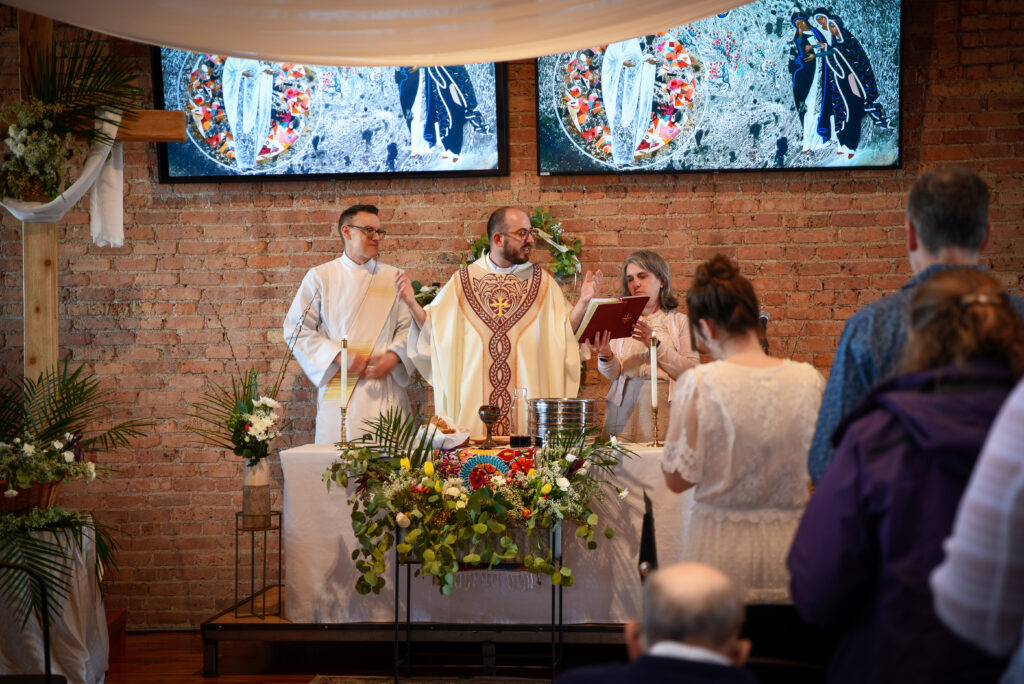08 Aug Meet Deacon Casey and Erika Solgos
Brothers and Sisters, I’d like to introduce you to another diocesan leader couple: Deacon Casey and Erika Solgos.
Deacon Casey and Erika have lived in Aurora, IL for years and joined City of Light Church in her pre-launch days (2015), and Casey was ordained in 2019. Their leadership and shepherding has been a vital part of the church’s culture.
Vocationally, Casey is a high school English teacher—now English department chair—in Naperville, and Erika has her Master’s in Social Work and is a therapist in Chicagoland. They have four young adult children—two biological and two adopted. I hope you’ll enjoy reading more about their calling, their adoption stories, and what it’s meant for their family to be part of a church plant.
+Stewart
Bishop Stewart E. Ruch III
Interview by Bonnie McMaken, Editor
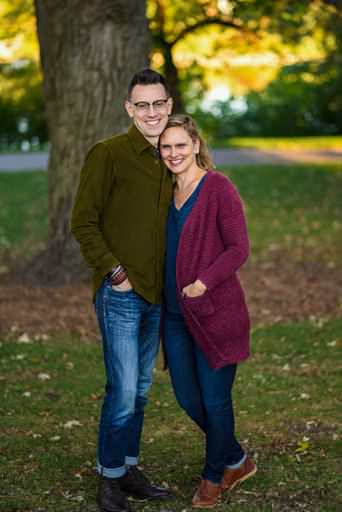
Deacon Casey & Erika, you weren’t on the City of Light launch team, but you came to the first preview service and have been an integral part of the church and her leadership. What made you want to be part of a church plant like City of Light?
Erika: I grew up in a liturgical tradition, so when we heard an Anglican church was being planted in our city, we were eager to be a part of it, even though we had been part of a local non-denominational church for over a decade. The call to love our neighbor and follow the church year was irresistible to us.
There’s nothing more exciting than watching someone encounter the Lord directly. For a person who’s suffering, I can do very little compared to what Jesus can. So when I witness a person encountering the Lord in prayer, it’s a huge honor. I also get excited when I see parishioners finding deliverance from things that are blocking them from receiving God’s love.
Casey: I kept sensing the Holy Spirit drawing me to the promise of God doing a “new” thing (which was really a very, very old thing) in our city. The invitation to return to this ancient stream of worship was deeply appealing, and I wanted this same spiritual refreshment for my community.
Your family has a big heart for adoption. Can you tell us about how this developed?
Erika: Even before we were married, we knew we wanted to grow our family through adoption. Before we adopted, we had two children biologically. Our daughter Evelea (now 23) was born first, then our son Carter (now 19). Carter was born with significant medical challenges, including several life-threatening heart defects. This experience broke our hearts for children who needed care but couldn’t access it.
Casey: Jesus concludes one of his parables with, “for to whom much is given, from them much will be required.” Having received much, this verse became our mission statement, and the call to adopt flowed from that.
Erika: So we adopted Sitota (now 20) from Ethiopia when she was three. About a year later we heard about Thérèse, a nine year-old girl in Burkina Faso who had a significant heart defect. She had her heart surgery within a few months of her adoption, and is now 23. We were excited about sharing not only excellent medical care with her, but also the love of our family.
Casey: We find that the diversity of our family is prophetic: the way we look and have learned to live and love is a daily reminder of what the Church is supposed to be. We are humbled to have the privilege of reflecting God’s image—his glory and beauty—in this way, and we marvel at God’s goodness to us!
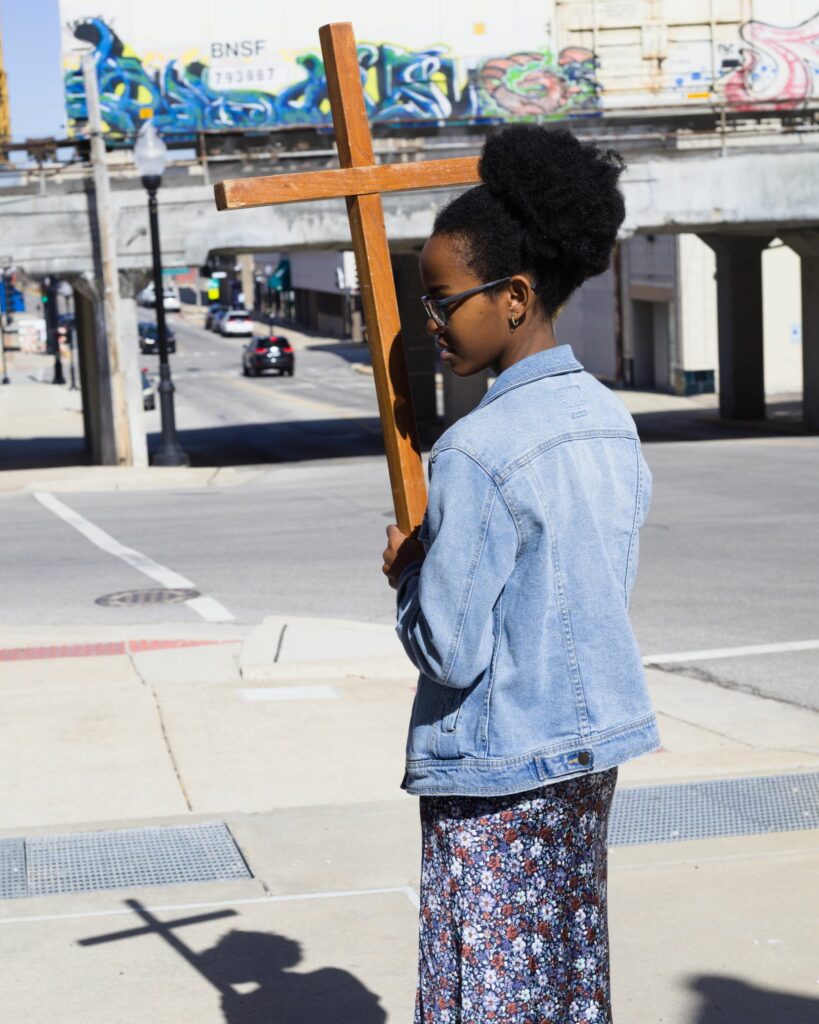
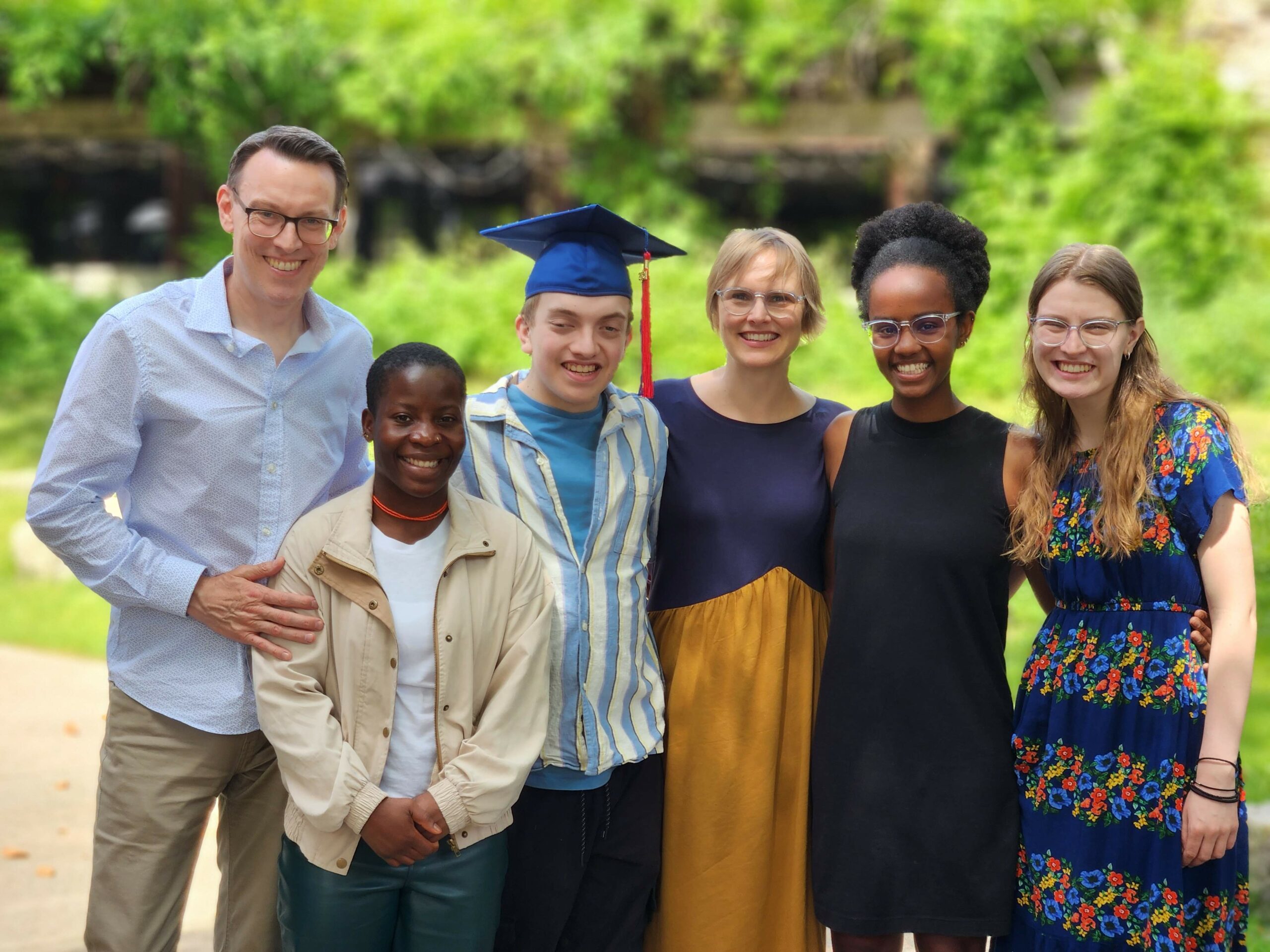
Carter’s graduation in June. From left: Deacon Casey, Thérèse, Carter, Erika, Sitota, & Evelea
Casey, your professional calling is as a high school teacher. Do you see your dual vocations as deacon and teacher integrating? How so?
The number one thing I received is an inheritance of faith by watching my parents’ faith on the mission field and experiencing how capable God is of providing for our every need.
My dad was a church planter but ended up focusing on spiritual warfare, which has profoundly shaped me. In Jesus, we have so much authority against the powers of darkness and don’t need to be afraid. Not everyone in the U.S. is comfortable with the concept of spiritual warfare, and I’m glad that I can share that hope of the authority we have in Jesus.
Erika, how has your experience in pastoral care and prayer made you a better therapist, and vice versa? How has clinical work made you more attuned to parishioners’ needs?
I’m really comfortable being with people who are hurting and offering them a safe and healing presence. Henri Nouwen calls listening the highest form of spiritual hospitality, so I try to embody that through my pastoral care ministry and in my work as a therapist. Even with my clients who are not yet believers—perhaps especially with them—I’m listening to the Spirit on their behalf. On the flip side, my clinical work helps me ask good questions when I’m with someone at church who needs care.
We find that the diversity of our family is prophetic: the way we look and have learned to live and love is a daily reminder of what the Church is supposed to be.
Erika Solgos
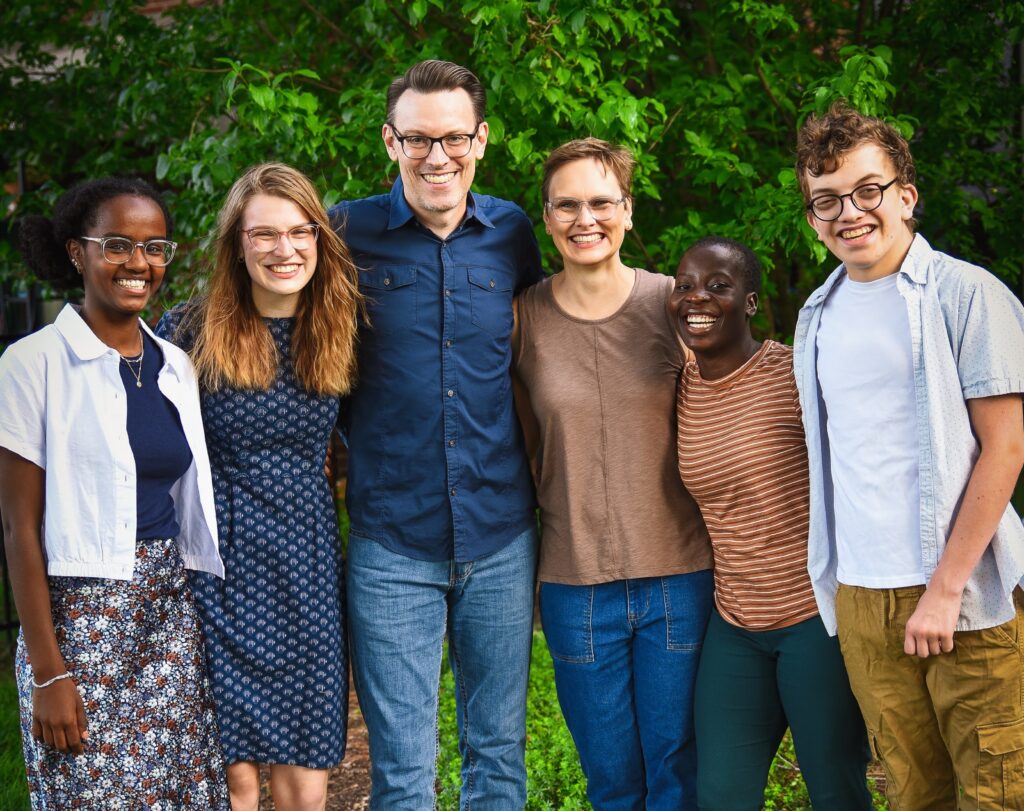
What rhythms as a couple keep you rooted in the Lord and connected to one another when you’re shepherding so many?
Casey: We connect most mornings by drinking coffee, reading the Bible, and praying together (yes, in that order!). We continue to grow in our practice of Sabbath keeping, slowing down, unplugging, resting, and reconnecting with each other, friends, and our Triune God.
What’s been the richest part about being part of a church plant? And what’s been meaningful for your kids?
Erika: Other church leaders and shepherds have done a tremendous job seeing the unique giftings of our kids and inviting them to serve doing everything from reading Scripture, volunteering in City Kids, coaching at a neighborhood soccer camp, to creating artwork. I truly believe that this ministry has allowed our kid’s spiritual roots to deepen because they feel connected to the church and to the Lord.
Casey: Personally, I’ve loved watching our congregation grow, change, mature, and grow some more. I love that there are very new households now attending regularly, and I love the fact that I am bonded with brothers and sisters who have been here since the beginning. I’m gaining new perspective into the church experiences of my past and new insight into the dynamic of the universal Church organism.
